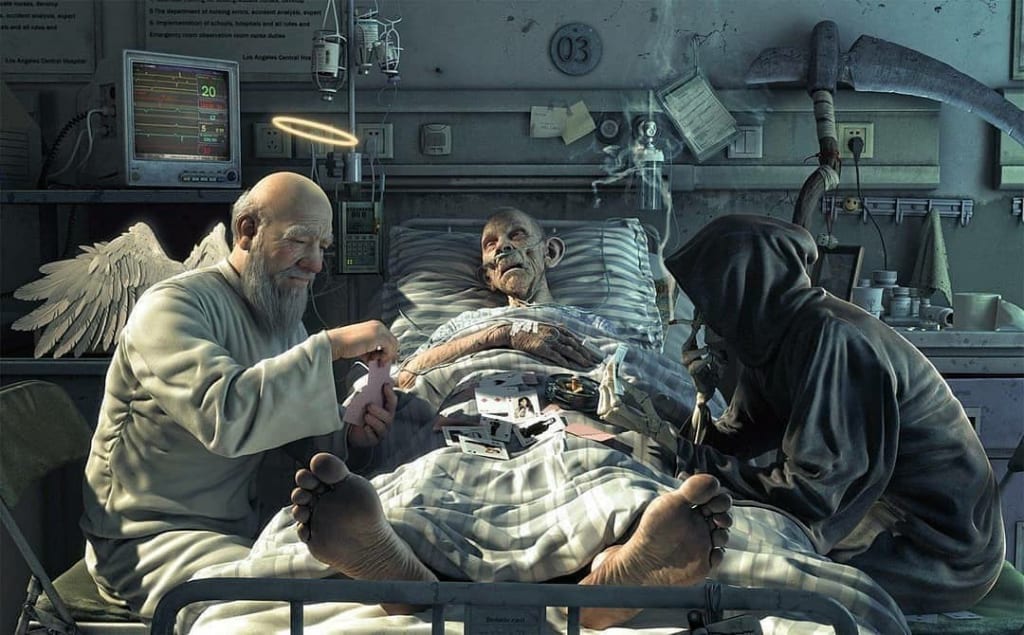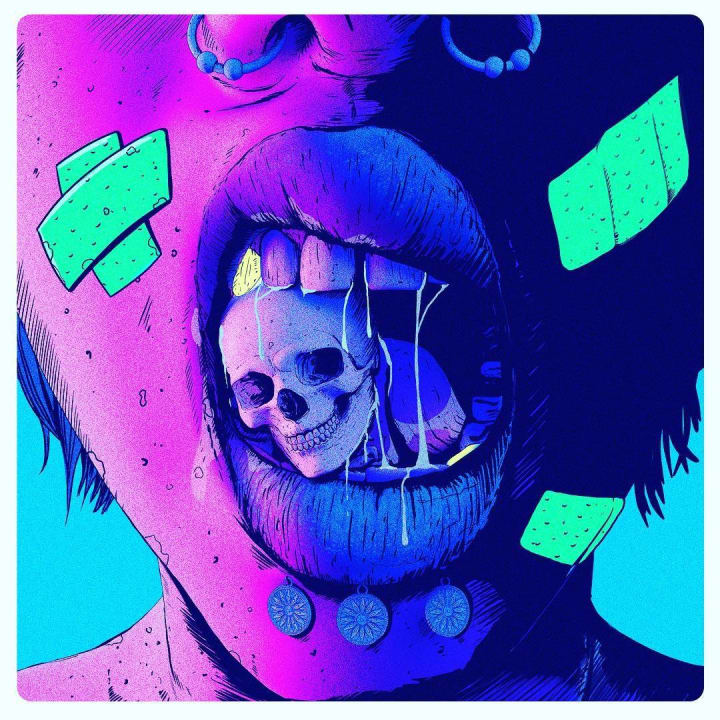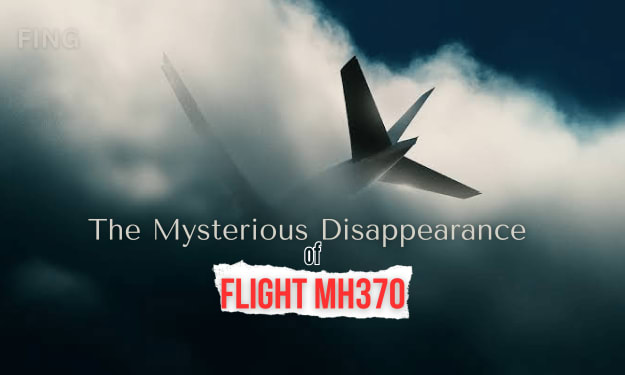
Death is the irreversible cessation of all biological functions that sustain an organism. For organisms with a brain, death can also be defined as the irreversible cessation of functioning of the whole brain, including the brain stem, and brain death is sometimes used as a legal definition of death. The remains of a former organism normally begin to decompose shortly after death. Death is an inevitable process that eventually occurs in all organisms. Some organisms, such as Turritopsis dohrnii, are biologically immortal. However, they can still die from other means than aging.
Figuring out when someone is dead has been a problem. Initially, the definition of death was when breathing and the heartbeat ceased. However, the spread of CPR no longer meant it was irreversible. Brain death was the next option, which fractured between different definitions. Some people believe that all brain functions must cease. Some believe that even if the brainstem is still alive, their personality and identity are dead, so they should therefore be entirely dead.
Death is generally applied to whole organisms; a similar process seen in individual components of an organism, such as cells or tissues, is necrosis. Something that is not considered an organism, such as a virus, can be physically destroyed but is not said to die, as a virus is not considered alive. As of the early 21st century, 56 million people die per year. The most common reason is cardiovascular disease, which is a disease that affects the heart.
Many cultures and religions have the idea of an afterlife and may also hold the idea of judgment for good and bad deeds in one's life. There may also be different customs for honoring the body, such as a funeral, cremation, or a sky burial.
A group of scientists known as bio gerontologists are actively attempting to cure death by mimicking biologically immortal organisms and applying similar methods to humans. However, as humans do not have the means to apply this to themselves, they have to use other methods to reach the maximum human lifespan, such as calorie reduction, dieting, and exercise.

Problems of definition
The concept of death is a key to human understanding of the phenomenon. There are many scientific approaches and various interpretations of the concept. Additionally, the advent of life-sustaining therapy and the numerous criteria for defining death from both a medical and legal standpoint have made it difficult to create a single, unifying definition.
Defining life to define death
One of the challenges in defining death is distinguishing it from life. As a point in time, death seems to refer to the moment when life ends. Determining when death has occurred is difficult, as the cessation of life functions is often not simultaneous across organ systems. Such determination, therefore, requires drawing precise conceptual boundaries between life and death. This is difficult due to the lack of consensus on how to define life.
It is possible to define life in terms of consciousness. When consciousness ceases, an organism can be said to have died. One of the flaws in this approach is that there are many organisms that are alive but probably not conscious. Another problem is defining consciousness, which has many different definitions given by modern scientists, psychologists, and philosophers. Additionally, many religious traditions, including Abrahamic and Dharmic traditions, hold that death does not (or may not) entail the end of consciousness. In certain cultures, death is more of a process than a single event. It implies a slow shift from one spiritual state to another.
Other definitions for death focus on the character of cessation of organismic functioning and human death, which refers to the irreversible loss of personhood. More specifically, death occurs when a living entity experiences an irreversible cessation of all functioning. [22] As it pertains to human life, death is an irreversible process where someone loses their existence as a person.

Misdiagnosis
There are many anecdotal references to people being declared dead by physicians and then "coming back to life," sometimes days later in their coffin or when embalming procedures are about to begin. From the mid-18th century on, there was an upsurge in the public's fear of being mistakenly buried alive and much debate about the uncertainty of the signs of death. Various suggestions were made to test for signs of life before burial, ranging from pouring vinegar and pepper into the corpse's mouth to applying red-hot pokers to the feet or the rectum. Writing in 1895, the physician J.C. Moseley claimed that as many as 2,700 people were buried prematurely each year in England and Wales, although others [who?] estimated the figure to be closer to 800.
In cases of electric shock, cardiopulmonary resuscitation (CPR) for an hour or longer can allow stunned nerves to recover, allowing an apparently dead person to survive. People found unconscious under icy water may survive if their faces are kept continuously cold until they arrive at an emergency room. This "diving response," in which metabolic activity and oxygen requirements are minimal, is something humans share with cetaceans and is called the mammalian diving reflex.
As medical technologies advance, ideas about when death occurs may have to be reevaluated in light of the ability to restore a person to vitality after longer periods of apparent death (as happened when CPR and defibrillation showed that cessation of heartbeat is inadequate as a decisive indicator of death). The lack of electrical brain activity may not be enough to consider someone scientifically dead. Therefore, the concept of information-theoretic death has been suggested as a better means of defining when true death occurs, though the concept has few practical applications outside the field of cryonics.
About the Creator
Anmol Shukla
Writing gives me a freedom that I do not find anywhere else! #writing
〰️ Fiction (Horror/Thriller)
〰️ Non-Fiction (Nutrition and True Crime)
〰️ Poetry
Enjoyed the story? Support the Creator.
Subscribe for free to receive all their stories in your feed. You could also pledge your support or give them a one-off tip, letting them know you appreciate their work.






Comments
There are no comments for this story
Be the first to respond and start the conversation.